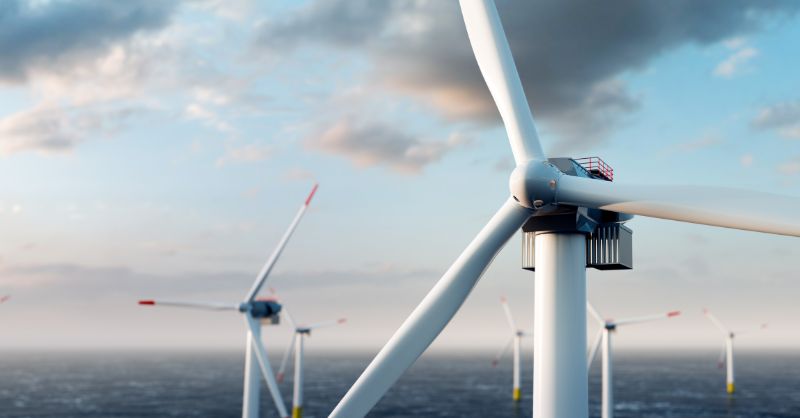Energy & Power Industry: Embracing Renewable Sources and Advancing Energy Efficiency

The energy and power industry is undergoing a significant transformation as the world strives to reduce carbon emissions and combat climate change. Renewable energy, power generation, energy efficiency, and power distribution are at the forefront of this revolution, revolutionizing the way we produce and consume energy. In this article, we will explore the latest trends and developments in the industry, highlighting the efforts being made to create a sustainable and efficient energy future.
Renewable energy has emerged as a key player in the global energy landscape, offering cleaner alternatives to traditional fossil fuels. Solar and wind power are leading the charge, with their increasing affordability and efficiency making them viable options for widespread adoption. The deployment of solar panels and wind turbines has witnessed a remarkable growth in recent years, with countries and businesses investing heavily in these technologies. This shift towards renewables not only reduces greenhouse gas emissions but also promotes energy independence and creates new job opportunities.
Power generation is another crucial aspect of the energy and power industry that is witnessing remarkable advancements. Innovative technologies such as advanced gas turbines, nuclear power, and hydropower are being utilized to meet the growing demand for electricity while minimizing environmental impact. Advanced gas turbines, for instance, offer higher efficiency and lower emissions compared to older models, ensuring cleaner and more sustainable power production.
Energy efficiency plays a vital role in reducing overall energy consumption and optimizing resource utilization. By embracing energy-efficient practices, industries,
Efficient power distribution is essential for ensuring a reliable and uninterrupted supply of electricity. Smart grids are revolutionizing the power distribution infrastructure by integrating advanced technologies, such as sensors, communication networks, and data analytics. These grids enable real-time monitoring, load balancing, and efficient management of electricity distribution, leading to reduced wastage and improved grid stability. Moreover, the integration of renewable energy sources into the grid is made more manageable through smart grid technologies, facilitating the seamless integration of intermittent sources like solar and wind power.
As the energy and power industry continues to evolve, various market players are actively contributing to its growth and development. Renewable energy developers, equipment manufacturers, and service providers are continuously investing in research and development to enhance the efficiency and affordability of renewable energy technologies. Likewise, power generation companies are exploring advanced methods of power production and investing in cleaner alternatives to fossil fuels. Energy service companies are playing a crucial role in promoting energy efficiency by offering energy audits, retrofitting services, and energy management solutions.
The energy and power industry is undergoing a rapid transformation driven by renewable energy, advancements in power generation, energy efficiency measures, and smart power distribution systems. The shift towards renewable energy sources, such as solar and wind power, is paving the way for a cleaner and more sustainable energy future. Simultaneously, energy efficiency practices and smart grid technologies are optimizing energy consumption and enhancing grid stability. With continued investments and innovation, the industry is poised to address the challenges of climate change and create a greener and more efficient energy landscape for future generations.
Previous Story
- Beverage Industry Adapts to Growing Demand for Non-Alcoholic...
- Coking coal slide to 5-month lows after mills...
- World enters 'new age' of clean energy manufacturing:...
- EU leads in hydrogen technology patents as energy...
- The best energy-efficient washing machines for your home
- Japan to keep stake in Russian energy project...
- Adnoc Drilling secures $1.53bn contract to boost Adnoc's...
- EU agrees windfall tax on energy firms